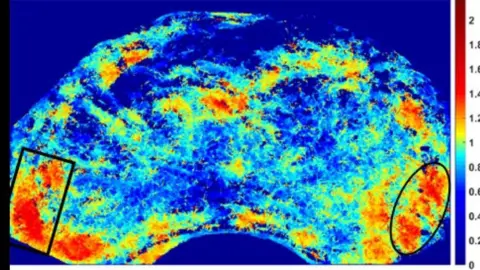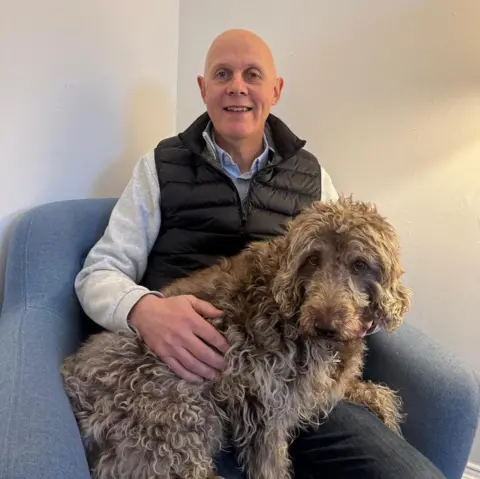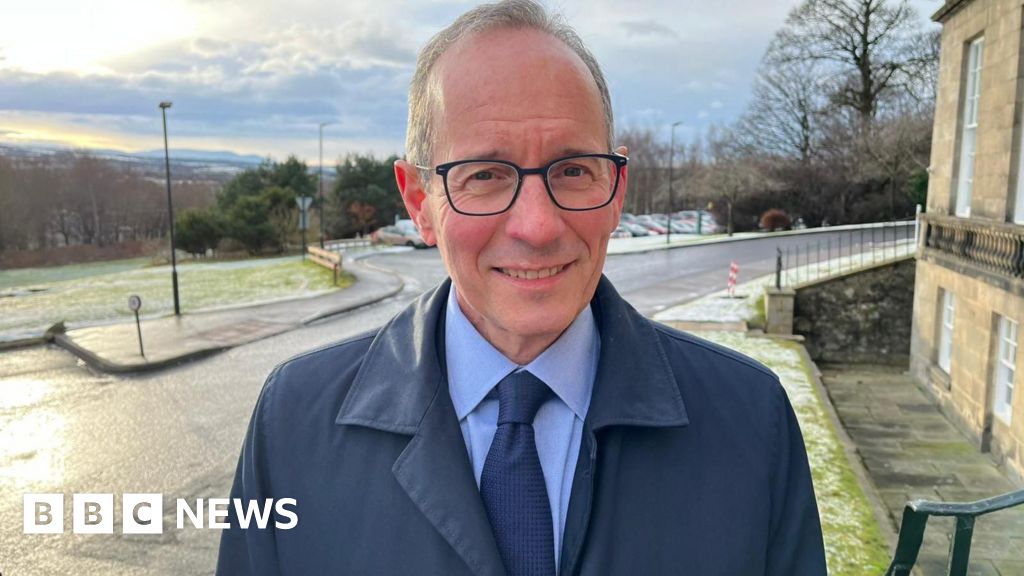

Researchers say they are encouraged by testing a new process for detecting prostate cancer in men.
The approach, developed at Heriot-Watt University in Edinburgh, is expected to lead to faster diagnosis and earlier preventive treatment.
Prostate cancer is the most common cancer for men in the UK, with one in eight men being diagnosed with prostate cancer during their lifetime.
The process uses existing ultrasound equipment, widely available in most hospitals, instead of expensive MRI scanners, which can lead to long waiting lists and delays in treatment.
In this test, a solution containing millions of tiny, harmless microbubbles is injected into a vein.
These bubbles travel through the patient’s bloodstream to the prostate and are tracked using ultrasound technology.
Changes in blood flow within the cancerous tissue are highlighted by the solution and appear on the ultrasound scan.


Researchers at the university have completed an early stage clinical trial in collaboration with doctors at Edinburgh’s Western General Hospital.
The detection rate for prostate tumors was 94%, which the researchers said was “very encouraging”.
Clinical trials are expected to continue, but realistically it could take three to five years before the technology is ready for clinical use.
Professor Alan McNeill, consultant urological surgeon at Western General Hospital, said the initial trial results provided useful information for the diagnosis and treatment of prostate cancer.
He said: “This technology will greatly improve diagnostic accuracy, allowing clinicians like me to perform more targeted biopsies and, in turn, focus treatment with greater precision. It has potential,” he said.
“This is expected to benefit treatments such as topical therapy by allowing cancerous tissue to be more precisely identified and treated.
“Almost every week, my colleagues and I meet with men in their 50s or early 60s with advanced prostate cancer who have fewer treatment options.”


Professor Vasilis Svoros of Heriot-Watt University is co-founder of Less Gray Imaging.
He said the technology could support a future-fit NHS.
“By leveraging existing ultrasound scanners in hospitals and clinics around the world, we can generate high-resolution images of the prostate that clinicians have never seen before.
“With prostate cancer killing one man every 45 minutes in the UK, early detection can radically improve treatment outcomes, save lives and reduce unnecessary and often dangerous tests. I hope the numbers will go down.”
Prostate cancer is not necessarily life-threatening and can be cured if detected early.
In the UK, unlike breast, bowel and cervical cancers, there is no screening program for prostate cancer.
Instead, men are responsible for ordering a prostate-specific antigen (PSA) blood test from their GP after the age of 50.
These PSA tests are used to determine whether a patient should undergo an MRI scan.
Last year, six-time Olympic cycling champion Sir Chris Hoy called for a review of prostate cancer testing following his own terminal diagnosis.
Hui announced in August last year that he had been diagnosed with primary prostate cancer and could have a life expectancy of two to four years.


Gary Tait, 61, from Edinburgh, was treated for prostate cancer five years ago after his wife, a nurse practitioner, encouraged him to see his GP.
He currently chairs the Edinburgh and Lothians Prostate Cancer Support Group, which provides full support for the development of new technology.
Tate said the new test increases the chances that men will be diagnosed and treated early.
he said: “The diagnosis and treatment of prostate cancer is a very uncertain time, so it is very exciting to see the results of these trials showing that new ultrasound technology may lead to more accurate diagnosis of prostate cancer. I’m positive.
“From the perspective of men who are unaware that they have a tumor in their prostate, this improved method of diagnosis could lead to earlier treatment, increasing the likelihood of a successful outcome.”


